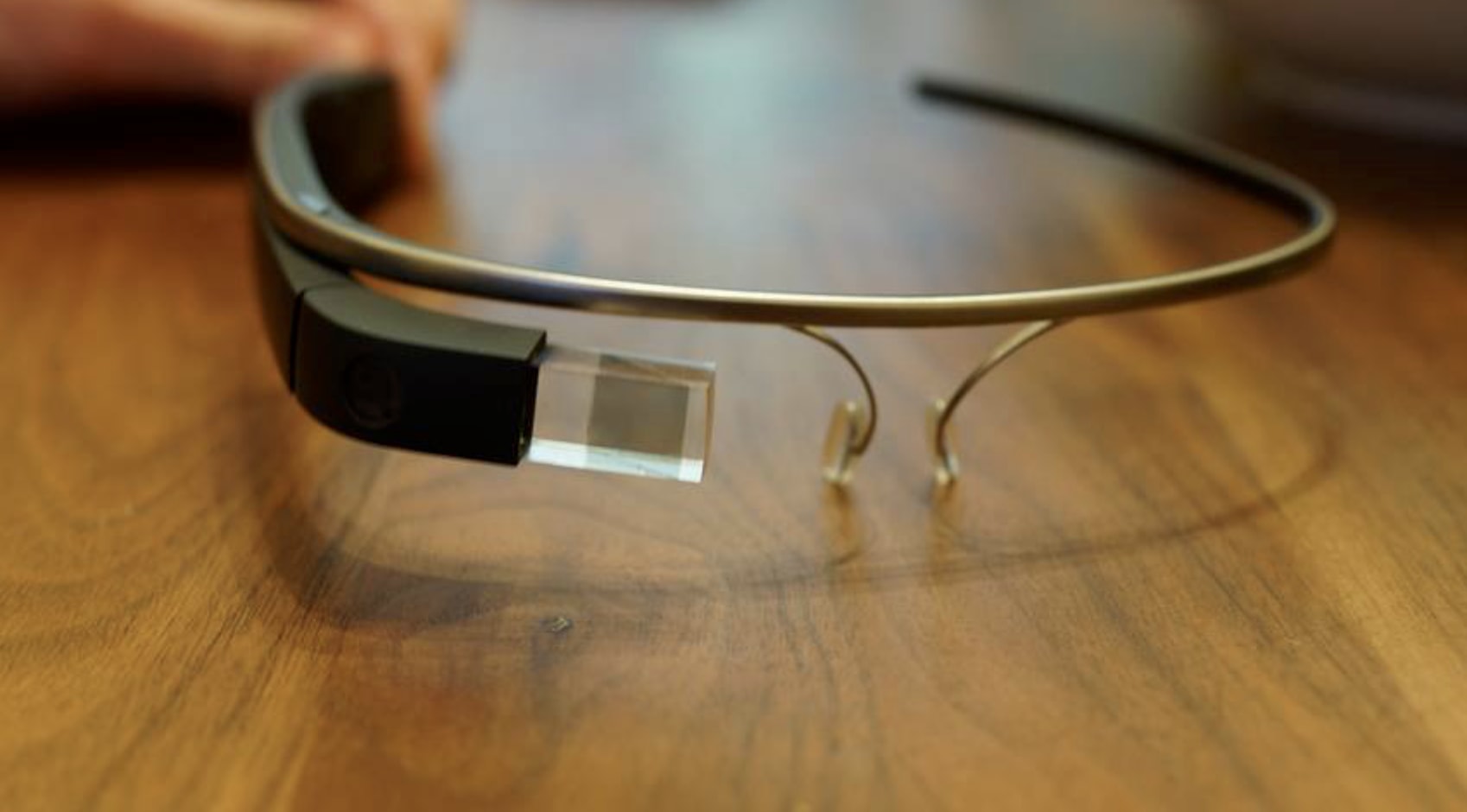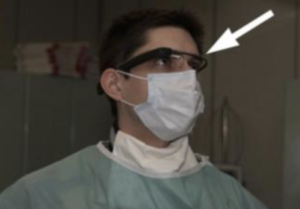Response 3 – AustinT, IanH, IanD

Google Glass heads into the Operating room:


The goal of this green technology is not to create something like renewable energy, it is to make surgery more efficient. Surgeries, where a clear line of sight is not possible, make google glass a dramatic improvement. Having the image of the procedure in your vision rather than on a separate screen improves efficiency and awareness. “the better will the organization be able to learn, respond creatively to new circumstances, change, and evolve.” (Capra). Although Capra is talking about sustainable communities and not surgical procedures, this idea still applies to what we are talking about. To make a community more efficient we need to be open to change all aspects of life.
Using Google Glass during surgery is a good approach to solving the issue of difficulty and precision of a procedure. By having the detailed imagery of the surgery they are performing in the surgeon’s line of sight, they are able to become much more efficient in the total process.
Surgical precision is an important issue to address because, like the article stated, some procedures have high failure rates. This is due to the amount of guesswork that goes into making precise incisions to access an organ that you can’t see.
This project addresses the issue by offering a solution to the problem. The Treehugger article claims that the term “green technology” can also be used to define functionality, usefulness, and the betterment of the world. AR surgery contributes to human culture, community, and ecosystems by keeping more of us here. It has a multitude of implications on the world simply because it is a way to save human lives. Who knows, perhaps this could also be used to perform surgery on wildlife as well.
Although it is not directly related to common ecological causes, this project helps us to better understand our own anatomy and ways we can help those in desperate need of surgery. It opens the door to a wider realm of possibilities; pioneering the use of this emerging AR technology to better our lives and the world around us. One of the ways I see this technology bettering our lives is through education. Once Glass is more commonplace, I can see it being used in classrooms to visualize certain biological and ecological systems. The best way to solve problems is to show that problem visually, not just talk about it. If we can show people how their choices are really affecting the world, they’ll be more inclined to make a change. We can’t solve our problems without first understanding them. As David Orr states in “The Intelligence Of Ecological Design”: “The disorder of ecosystems reflects a prior disorder of mind, making it a central concern to those institutions that purport to improve minds. In other words, the ecological crisis is in every way a crisis of education.”
When really looking at what Google Glass is, we see a very ambitious and expensive project. Creating a headset that could almost permanently put us in an Augmented Reality is quite an idea, and would go a long way in saving time and energy. Yet is it all that possible? With a quote from the article, this device is “A superfluous gadget that was compelling in theory, but didn’t have a strong role to play in making our lives more efficient…”(Treacy) We can see that, at the current moment, this device is more of a prototype, and more than anything is pushing an idea forward. To further this point, I found an interview focussing on what Google Glass is, and this came up at one point. “Google Glass isn’t commercially available.” (Tsukayama)
One of the current focuses for what this technology would be used for is the medical sector. It will allow for doctors to have a better understanding of what is going on with both their patients and a better understanding of how to go about helping them. So is it working for this function? Well, it would seem to be so, “…it will begin with a shift from energy inefficiency toward hyper-efficiency now technically possible and economically feasible.” (Orr)
Although I don’t know the exact intricacies of Google Glass, I can say that it seems to have a similar build as a modern smartphone or even a VR headset. This making it a battery powered device, with seemingly long battery time. Considering that the idea behind this was essential to cut back on energy use, it seems like it would be successful. As it would seem it can do the same functions as a phone, and a computer. So in that regard, yes it would be cutting back on energy use. Yet, we can’t know for sure how the public would use, or abuse, this device. As in, it may just become another add-on to the numerous amount of electronic devices we use. In concept, it sounds like a great way to cut back energy, but as we know, the concept isn’t always how the general public uses it.
Orr, David W. “A Hippocratic Oath for Designers?” Ecoliteracy.org, 29 June 2009,
www.ecoliteracy.org/article/hippocratic-oath-designers.
Treacy, Megan. “Google Glass Heads into the Operating Room.” Treehugger, 23 Nov. 2015,
www.treehugger.com/gadgets/google-glass-heads-operating-room.html.
Tsukayama, Hayley. “Everything You Need to Know about Google Glass.” The Washington Post, WP Company,
27 Feb. 2014, www.washingtonpost.com/news/the-switch/wp/2014/02/27/everything-you-need-to-know-about-google-glass/?utm_term=.d6b9e04c7c1f.
Capra, Fritjof. “Life and Leadership for a Sustainable Community.” Ecoliteracy.org,
www.ecoliteracy.org/article/life-and-leadership-sustainable-community.
You must be logged in to post a comment.